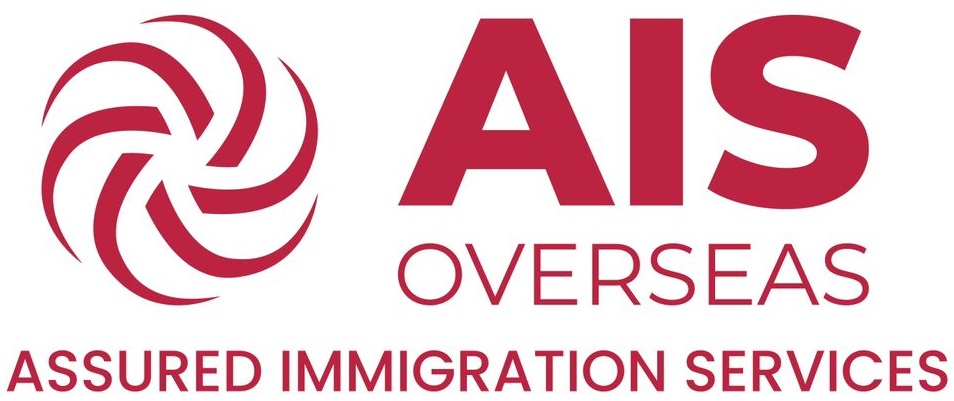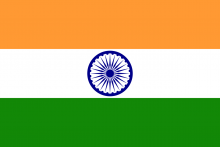
Study in Denmark
Sign up for a free expert consultation
Why Study in Denmark?
- 100/1300 QS Ranking Universities
- 3 Years of Post Study Work Permit
- Tuition Fees below €18,000
- Scholarship worth USD 8,000 to 21,000
- Get a Denmark Student Visa in 60 days
Eligibility to Study in Denmark
Indian students can study in Denmark if they fulfill the conditions for a study visa. The following criteria must be met in order to be admitted to Danish universities.
- To guarantee that you will finish your education, present evidence of your financial stability.
- The type of proof you choose for the course medium will determine whether it is in Danish or English.
- Evidence of purchase for travel insurance
- Evidence of your accommodations in Denmark throughout the study period
Benefits of Studying in Denmark
Denmark is a desirable travel destination. The nation has a rich cultural history. Though stunning, the nation is also well-known for its educational system. Denmark has a number of highly regarded universities, which has attracted many international students to pursue their studies there.
- Attractive scholarships available to students from abroad.
- Numerous highly regarded universities.
- Affordable tuition.
- Superior standards for schooling.
- Picturesque and scenic locations.
- It is less expensive to live.
- Fantastic Danish food.
Intakes in Denmark
University admissions in Denmark are twice a year. There are two types of intake: summer and winter.
| Intakes | Study Program | Admission Deadlines |
|---|---|---|
| Summer | Undergraduate and Postgraduate | January – Mid-March |
| Winter | Undergraduate and Postgraduate | July to September |
Denmark Universities
Universities in Denmark have raised the bar for international education. Seven Danish universities are featured in the QS ranking for 2024. In 2024, the University of Copenhagen (KU) was ranked in the top 100 by QS. Denmark is home to numerous universities with top-notch facilities and worldwide accreditation. Every year, more than 35,000 foreign students decide to study in Denmark. One of the top engineering schools in the world is the Technical University of Denmark (DTU), and Copenhagen Business School (CBS) is a well-known business school. Denmark's universities prioritize high-quality instruction, research-focused studies, and creative teaching approaches.
Denmark Universities Fees
The tuition price is one of the main benefits of studying in Denmark. The annual tuition fee typically falls between 7,000 and 20,000 euros. The cost schedule differs for each university. The cost of tuition varies based on the college and course you choose. Denmark has grown in popularity as a study abroad destination because of its reasonable tuition costs. Certain Danish colleges also offer programs that waive tuition fees. Switzerland, EEA, and EA students are eligible for free tuition at numerous public universities across the nation.
QS Ranking universities in Denmark
| University | QS World University Ranking 2024 |
|---|---|
|
University of Copenhagen (KU) |
82 |
| Technical University of Denmark (DTU) | 104 |
| Aarhus University | 161 |
| Aalborg University (AAU) | 330 |
| University of Southern Denmark (SDU) | 347 |
| Copenhagen Business School (CBS) | 94 |
| Roskilde University (RUC) | 201 |
Introduction to Denmark Student Visa
One of the most popular study abroad locations for international students is Denmark. Numerous colleges and research institutes throughout the nation offer English instruction. The majority of overseas students choose to study in Denmark as a result. A Denmark student visa is necessary for anyone intending to study in Denmark. To study at any university in Denmark, students from all other countries—aside from citizens of Denmark, the EU, EEA, or Switzerland—must get a student visa for Denmark. Six months prior to the start of your classes at Denmark University, you must apply for a visa. Apply at the Danish embassy for a study visa to Denmark. The approval process for a Denmark student visa can take two weeks to two months, depending on the province.
Why Apply for a Denmark Student Visa?
Denmark is one option available to those wishing to study abroad. There are several solid reasons to choose this country. Denmark is home to numerous well regarded universities that provide grants and scholarships to worthy students. Students can enjoy affordable housing and living expenses while immersing themselves in Denmark's distinctive traditions, food, and culture.
Do you need help studying abroad? AIS Overseas is available to help you in every manner.
What are the visa requirements for students?
Depending on where you are from, you may need a visa to study in Denmark. If you are a citizen of any Nordic nation—that is, Sweden, Finland, Norway—you are not need to have any paperwork in order to study there. The only thing you'll need is a personal identification number, which you'll receive upon presenting your passport or other form of identification upon arrival.
With a valid passport, you can visit Denmark for a maximum of three months if you are a citizen of the EU, EEA, or Switzerland. However, if you intend to stay longer than three months, you will require a Danish registration certificate. You will receive a personal identification number with this certificate, which is necessary if you wish to work in the nation.
To study in Denmark, you will need a permission if you are not from the EU or EEA. The length of your stay will determine the type of permission you need. You will require a visa if you intend to remain for less than three months; if you plan to stay for longer than three months, you will require a residence permit. Here are some further details:
A short-term stay visa
The Danish embassy or consulate in your nation is where you can apply for this visa. However, you are not permitted to work in Denmark with this visa.
DDenmark Study Visa Requirements
- Completed ST1 form
- Letter of acceptance from Danish university
- Proof of financial reports
- Academic transcripts
- Application fee payment receipt
- 60-70% of scores in previous academics
- IELTS with 7.0 score
- TOEFL: 587-610:- paper-based, 94-101:- internet-based test, or 240-253:_ computer-based test
- English A – Certificate of Proficiency (CPE)
Types of Denmark Student Visas
| Applicant | Procedure |
|---|---|
| Non-EU, EEA, and Swiss citizens | Apply for a student residence permit before 6 months of arrival to Denmark |
| EU, EEA, and Swiss citizens | Apply for residence formality. Not supposed to work for a residence permit. |
Source: QS Ranking 2024 For Admission to Denmark Universities; contact AIS Overseas!
For Admission to Denmark Universities, contact AIS Overseas!
Residence permit for long-term stay
You will need to apply for a residence permit if your studies require you to stay in Denmark for longer than three months. The Danish embassy in your nation of residence is where you can submit the application. With a residency permit, students are allowed to work 20 hours a week in Denmark.
You don't need to worry about renewing the residence permit because it will remain valid for the duration of your program. It is best to start the application procedure three months before to your intended departure date for Denmark.
Denmark Student Visa Validity
A five-year student visa to Denmark is granted. If an extension is required, it can also be granted from India. Indian students can take an airport or seaport to Denmark from any selected immigration checkpoint port.
Denmark Student Visa Cost
The cost of a student visa to Denmark is between DKK 1900 and DKK 2500. According to the terms and conditions of the government, the visa fee is subject to change. Students using the immigration portal to check the details can apply for visas.
Denmark Student Visa Processing Time
Depending on the province and university, the processing time for student visas might range from two weeks to two months. Students can check their visa status online after submitting an application.
How to apply for a Denmark student visa
Step 1: Determine whether you qualify for a student visa to Denmark.
Step 2: Put together all necessary paperwork.
Step 3: Apply online for a visa to Denmark.
Step 4: Await the status of the approval.
Step 5: Take a plane to Denmark to complete your study.
Scholarship to Study in Denmark
| Name of Scholarship | Amount in Euro |
|---|---|
|
Erasmus Mundus Scholarships |
12,000 |
| Nordplus Scholarship | 24,000 |
| Danish Government Scholarship (Ministry of Higher Education and Science) | 9,800 |
| CBS International Ph.D. In Economics | 51,985 |
| Danish State Tuition Fee Waivers and Scholarships at Roskilde University | 93,600 |
| The Lendo Scholarship | 60,000 |
How AIS Overseas Help You to Study in Denmark
To help applicants who want to study in Denmark, AIS Overseas can provide more essential support. The procedure for support consists of
- Free Counseling: Free Counseling regarding course and university choices.
- Campus Ready Program: Take the greatest and most suitable flight to Denmark.
- Course Recommendation: AIS Path offers the most appropriate suggestions for your course of study and job paths.
- Denmark Study Visa: You can obtain a Denmark study visa with the assistance of our knowledgeable staff.
Other services
|
STATEMENT OF PURPOSE |
LETTERS OF RECOMMENDATION |
OVERSEAS EDUCATION LOAN |
|
COUNTRY SPECIFIC ADMISSION |
COURSE RECOMMENDATION |
DOCUMENT PROCUREMENT |
Frequently Asked Questions
International students must have resided in Denmark for more than eight years following the studies in order to be eligible for PR. Following your graduation from Denmark University, you will need to find employment within the nation. It's possible that you have more financial stability to support yourself while visiting Denmark. You can apply for Danish permanent residence if you fulfill all of the requirements.
As required by the Danish government, candidates need to have a sufficient bank balance in order to submit an application for a student visa to Denmark. The ideal amount to have in your bank account would be between 6,000 and 8,000 DKK. The required deposit to maintain the tuition cost and semester course fee is 600 DKK each month at the very least.
Universities in Denmark require an IELTS score between 6.0 and 7.0. A reading score of more than 6.5 on the IELTS may even be required by some colleges. It solely relies on the course and university.
While studying in Denmark, international students are permitted to work. Upon course completion, the option to apply for a work permit becomes available. Swiss, EU/EEA, and Nordic nationals are not limited in their working hours.
Three months before to your intended arrival date is the ideal time to begin the residence permit application process. The complete process and processing dates may differ depending on your nationality because certain documents need to be signed, sealed, and sent in addition to biometrics.
If you fulfill the following legal requirements, you are allowed to work in Denmark as an international student:
Non-EU/EEA and non-Nordic students are permitted to work 20 hours per week from September to May, and 37 hours per week from June to August.
You have to be accepted into a study program for higher education that has been approved by the government or that is provided by a publicly recognized educational establishment.
Documents attesting to your ability to pay for your expenses during your stay in Denmark, either on your own or through a sponsor.
The residence permit can be obtained for the length of the study program, with an additional year of extension options.


